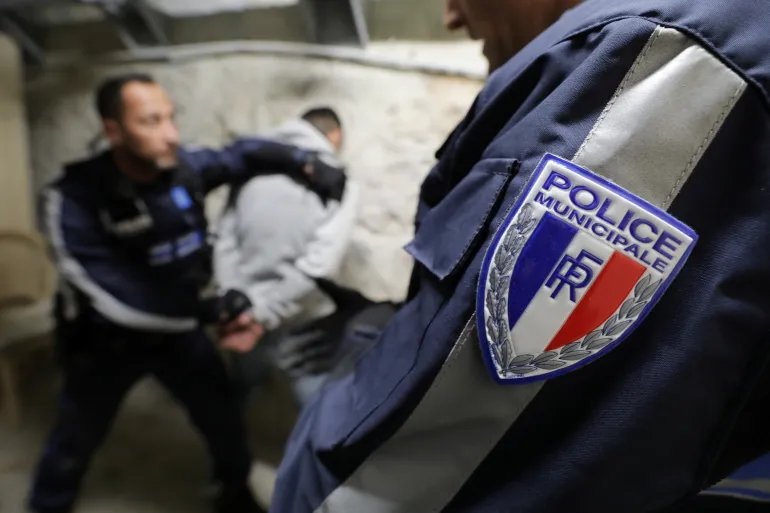France
UN Criticizes France For Police Violence And Racism Allegations

UN Criticizes France For Police Violence: A rise in police brutality and systematic racism have drawn UN Human Rights Council censure to France. The censure comes after extensive Labour Day protests that highlight racial prejudice and disproportionate force against protestors. Sweden’s delegate asked France to address these disturbing charges transparently and investigate the reasons for the rise in violence, notably against minority populations.
Police brutality at significant events like the 2018 “gilets jaunes” yellow vest protests and the 2022 Champions League finals has also been criticized. This emphasis on previous instances highlights the issue’s depth, raising doubts about the French government’s commitment to ending systematic racism in police enforcement.
Religious Intolerance And Attacks Against Black Communities
France’s religious intolerance and assaults on migrants during the UN inspection raise worries about minority populations’ treatment. Countries have used the Universal Periodic Review (UPR) to condemn France’s actions, with the US underlining the need to combat religious hate, including antisemitism and anti-Muslim attitudes.
China has asked France to eliminate migrant rights violations, while Brazil and Japan stress the necessity of removing security forces’ racial profiling. In addition to police brutality, the criticism addresses disadvantaged populations’ social issues, broadening the discussion of racism.
France’s Response And Challenges In Combating Racism
In response to the charges, French interior ministry legal advisor Sabrine Balim informed the UN Council that France opposes racial profiling. Balim said police force abuse is rigorously monitored, regulated, and punished. As the international world evaluates France’s guarantees, concerns remain regarding their efficacy in addressing deep-rooted prejudice and discrimination.
Paris must reconcile efficient policing with the elimination of racial prejudice in its law enforcement agencies while the world watches. The UN inspection forces France to confront current issues and calls for structural reform, putting racism at the center of international human rights talks.
International Perspectives On Police Violence
Russia’s Kristina Sukacheva expressed alarm over France’s “harsh and sometimes violent measures aimed at dispersing peaceful citizens.” Russia, also criticized for police brutality, urges France to reconsider its protest policies. France’s activities affect the world, as this international viewpoint emphasizes.
Kelly Billingsley, representing the US in the UN Council, urged Paris to increase efforts to combat religious hatred-related crimes and threats. This approach links racism and religious intolerance to human rights breaches. France must handle these complex issues fully due to worldwide interest.
The Impact On Black Communities And Racial Profiling
A significant critique of France is the effect on Black neighborhoods and racial profiling. China’s plea to “stop measures that violate the rights of migrants” resonated with Black French people’s struggles, even if the UN Council discussed migrants’ rights. The interconnectedness of race, migration, and discrimination emphasizes the necessity for community-specific rights protections.
Brazil and Japan’s focus on ending security forces’ racial profiling matches rights organizations’ worries. Racial profiling perpetuates law enforcement inequities and fosters a culture of fear and distrust. The UN investigation highlights racial profiling in the French security system, requiring extensive changes to guarantee equal treatment of all individuals.
France’s Commitment To Addressing Racism
Sabrine Balim’s promises on France’s condemnation of racial profiling and police oversight show the government’s anti-racism attitude. However, the international community remains wary and demands action beyond words.
France’s commitment to ending racism will be challenged in the coming months as it faces internal and foreign demands to enact substantial changes and address the root causes of these charges. These measures’ success will determine France’s worldwide stature and ability to promote equality and justice.
France’s Historical Context Of Protests And Law Enforcement Dynamics
To understand the present criticism of France, one must study protest history and police enforcement-demonstrator relations. In 2018, the “gilets jaunes” yellow vest demonstrations and the 2022 Champions League finals highlighted the delicate relationship between police and the population—these events, typified by increased tensions and violence, frame current critiques.
These demonstrations’ history shows law enforcement-citizen relations concerns. Understanding previous clashes’ origins is essential to finding current solutions. France’s reaction to international criticism will depend on its capacity to accept and learn from history.
Read Also: Erdogan Attributes France Riots To “Institutional Racism”
Pressing Calls For Reform From Within France
French citizens are demanding thorough change under worldwide scrutiny. Civil rights groups, activists, and concerned people have long called for law enforcement reform. Recent UN Council criticisms intensify internal reform requests, putting local and international pressure on the French administration.
The call for reform goes beyond acknowledging the concerns to addressing the core causes of police brutality and prejudice. France’s reaction to these internal requests will be widely watched as it balances law and order with human rights and equality.
France’s Position In The Global Dialogue On Human Rights
France’s human rights policies on individual liberties and equal rights are under review worldwide. France influences worldwide policies and norms as a UN Human Rights Council member. French critiques at the UN Council reflect France’s home circumstances and contribute to global human rights discussions.
The French reaction to these critiques will affect other nations. It will affect its human rights reputation and international relations. The international community’s watchful eye emphasizes human rights’ interconnectivity and the need to address fundamental difficulties across borders. France’s participation in this global discourse will determine its worldwide human rights leadership.













You must be logged in to post a comment Login